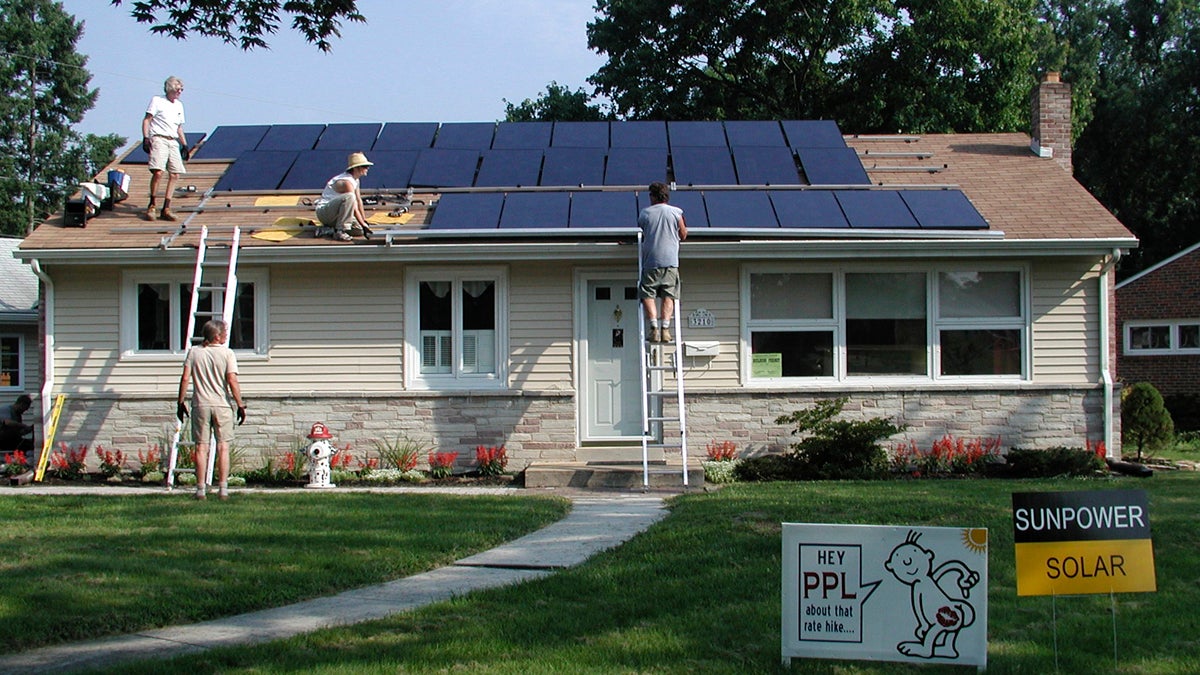Public Utility Commission seeks to limit solar arrays

In this undated photo, solar panels are installed on a Harrisburg, Pa. home (Tami and Randy Wilson/AP Photo)
The Pennsylvania Public Utility Commission is proposing limits to the amount of solar energy its customers can produce and sell back to the grid.
The proposed rule governs where solar panels can be placed, and caps energy production for households and businesses at 110 percent of the household’s annual energy consumption.
Commission spokeswoman Robin Tilley said the limit would cut costs for regular ratepayers.
“By customer-generators producing more electricity and selling it back to the grid and the utility, this could actually be passed through and affect the rates for other customers,” Tilley said.
The proposed regulations would affect customers who use “net-metering”. That means the energy they produce at home is fed into the grid and counted against their total electricity costs. Utilities pay customers for any surpluses.
The solar industry opposes the proposed rules, saying they will make it more complicated for homeowners looking to invest in solar and limit solar installations in the state
Pennsylvania Solar Energy Industries Association president Ron Celentano said a problem is that a household’s energy limit calculation could vary widely, depending on how much heating or air conditioning was used the year energy consumption was measured.
“There could be two houses identical next to each other with everything the same except one house does solar one year when there’s a very mild summer and mild winter, versus another house that does it where there’s a really severe winter, ” Celentano said.
“That right there would dictate two different-sized systems that could go on that house, so that’s a very unfair situation,” he said.
The regulations are open for public comment until September 3.
WHYY is your source for fact-based, in-depth journalism and information. As a nonprofit organization, we rely on financial support from readers like you. Please give today.

